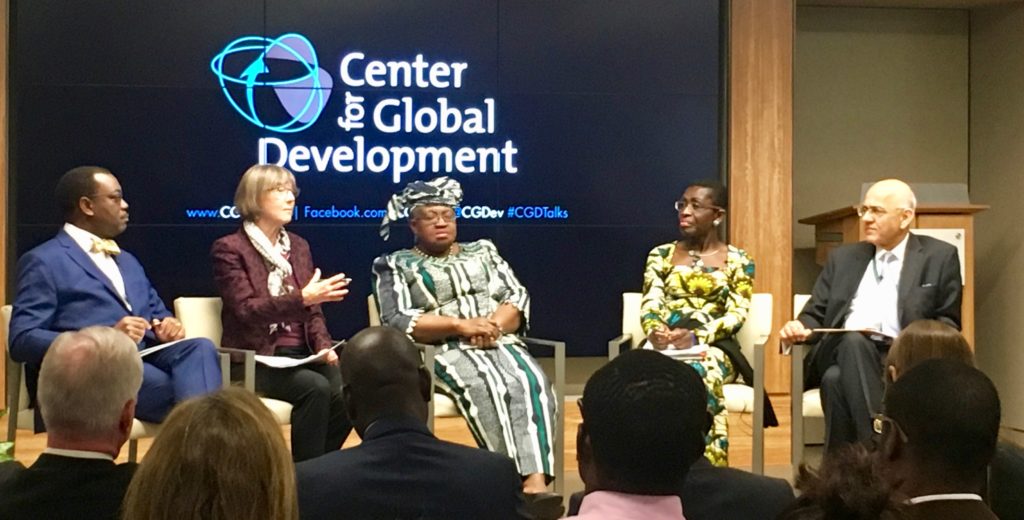
THE AFRICA BAZAAR MAGAZINE
January 22, 2019
Providing access to finance for small-medium-sized enterprises so they can participate in the African continental market is key to unlock and expedite the potentials of the African Continental Free Trade Agreement, said African Development Bank’s President Akinwumi Adesina.
“It’s what the Africa continental free trade agreement is about,” said Mr. Adesina. “At almost $3 trillion of combined GDP, that’s the market to focus on. I think that if we can deal with those issues of access to finance and invest in infrastructure, I think we’ll be able to help Africa to double a lot of the intraregional trades.”
Mr. Adesina, who made the remarks Tuesday at the World Economic Forum, Davos, said finance is much limited for SMEs in Africa, which “account for about 75 percent of all business sizes but only 25 percent have access to bank accounts.”
Adesina noted the lack of access to finance for SMEs has not only proven detrimental to expanding interregional trades among nations in Africa, it also has hindered integration into the global markets; adding that currently only 15 African countries account for 85 percent of interregional trade on the continent, with South Africa holding 34 percent of that trade.
“The continent exports a lot of raw materials, which makes it susceptible to the boom and bust of the global economy,” said Adesina. “What you find is that those countries that do participate in regional markets are the ones that actually have stability in terms of their economies, so building the size of that market is a critical thing. I think that Africa’s economy will be able to industrialize better, creates jobs, and will enable the nations to be participants of the global value chain market.”
“The issue is not how do we expand? That can’t be done that unless there access to trade finance, Adesina said. He added that the markets is “not just for the big guys to play in.”
Adesina said the financial institution that he leads, AfDB, has rolled out a $1billion finance to support trade finance, and SMEs. So far, the Bank has supported trade deals in 44 countries on the continent and have mobilized an estimated $7 billion in trades. The bank is also working with two major banks in South Africa to provide $600 million funds to support SMEs in 20 African countries.
Adesina underscored that political stability across the continent is important not only for Africa, but also for intra-Africa’s regional trade and driving direct investments that need to come into the continent.
He urged investors to look beyond the typical investments for alternative opportunities on the continent.
“The opportunities are there. When you think of African population, think of the middle class, think of the huge opportunities to invest across borders not just limited by boundaries,” said Adesina. “Look for the opportunities to be able to invest in a continent with a population that will be large as China and India by 2050. Rapid middle class, a continent that’s striving with young people with lot of things to do.”



